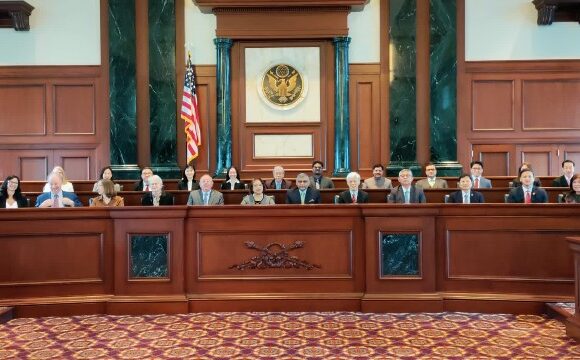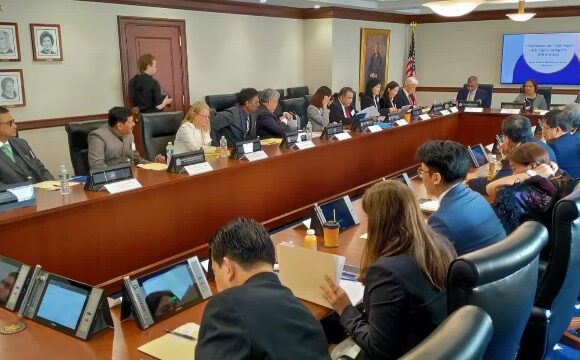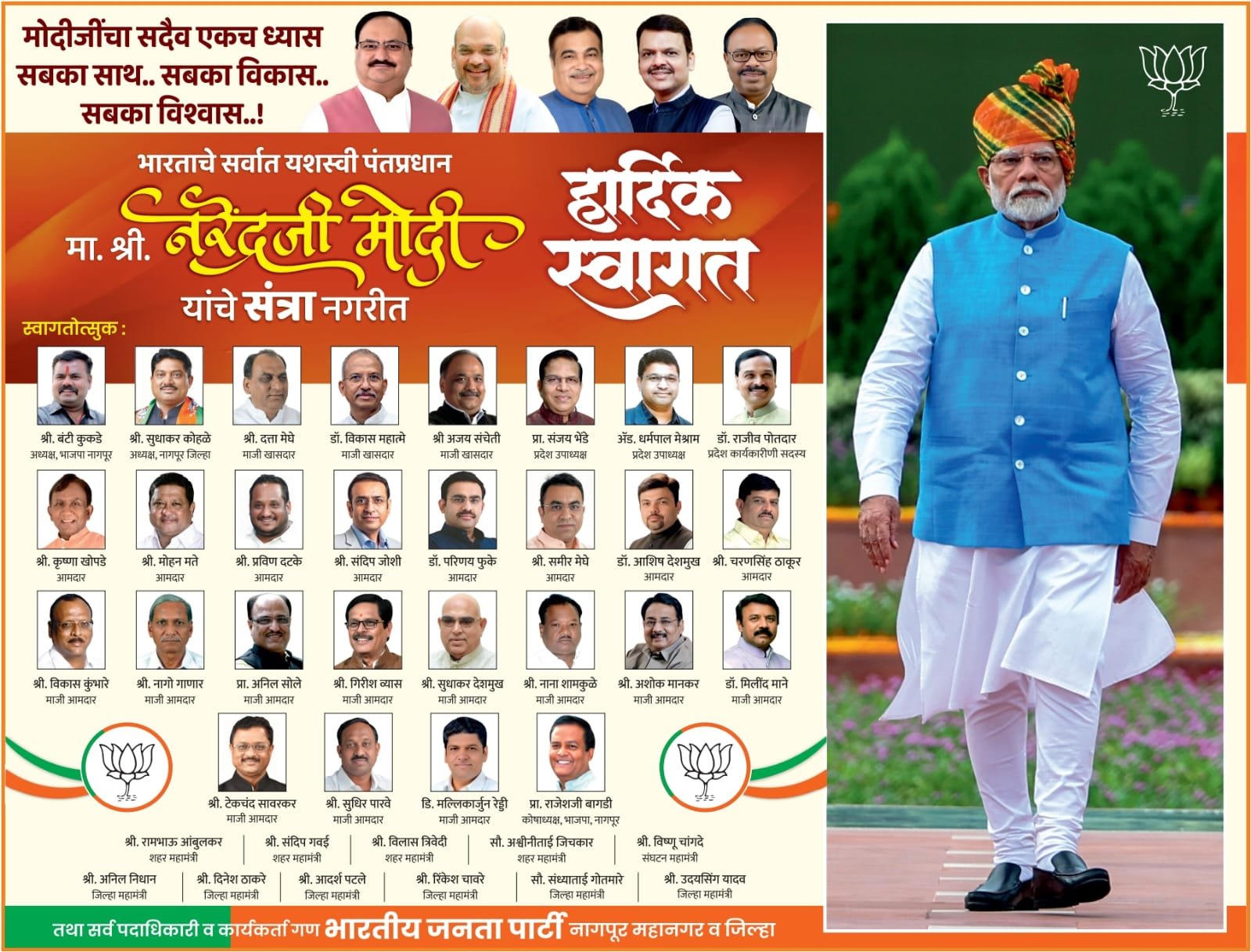– He introduced India’s effective judicial system to the world
Nagpur :- Supreme Court Justice Bhushan Gavai and Justice Dipankar Dutta from India have participated in the International Judicial Dispute Resolution Network Conference organized in New York. Justice Gavai is leading the Indian delegation at this conference. Meanwhile, Addressing the conference, Justice Gavai introduced India’s effective judicial system to the world. 
His discussion paper was on (I) Outreach efforts of the JDRN and (II) Support for capacity building and competency development in the JDR process. The proposed areas for discussion in respect of, (a) Countries to be approached to join and participate in the International Judicial Dispute Resolution Network (“JDRN”); (b) How the JDRN and its work should be promoted; and (c) What measures are needed to promote capacity building and competency development within JDRN jurisdictions.
The mission of the JDRN is to advance the adoption of the Judicial Dispute Resolution (“JDR”) process in judicial systems around the world to enhance the administration and delivery of justice by promoting the early, amicable, cost-effective and fair resolution of court disputes in full or in part through pro-active, judge-led management of cases, twinned with the employment of Court Alternative Dispute Resolution (“ADR”) modalities.
At the inaugural JDRN meeting held on 18th May 2023, Members had been encouraged to undertake outreach efforts by reaching out to potential JDRN Members and Observers, identifying and inviting judiciaries showing a keen interest in adopting the JDR process, or judiciaries which are in the early stages of adopting the JDR process, to apply for Observer status at the JDRN.
Representatives of countries like America, Australia, Canada, Germany, Malaysia, Philippines, Singapore, England and Wales, Ireland etc. have participated in this conference.
The Indian delegation was led by Justice Gavai. He gave the international judicial delegation an overview of the Indian judiciary’s organizational structure and the several successful strategies being used to deliver justice.
In Indian panchayat culture, the mediator and the compromise (between the parties) are very important. Amicable settlement of any dispute is preferred in this culture. This judicial principle is thoroughly explained by Justice Gavai. Mahatma Gandhi, the father of the nation, has made an invaluable contribution to establishing the concept of out-of-court dispute settlement in the country, said Justice Gavai.
Also, legal service authorities in the country from the Supreme Court to the Lower Courts are doing admirable work to get proper justice to the petitioner. Every year, thousands of pending cases in the country are settled through compromise in Lokadalat. Additionally, Justice Gavai also pointed out that due to this, the burden of compromised pending cases is reduced and it is possible to give time to important cases.



